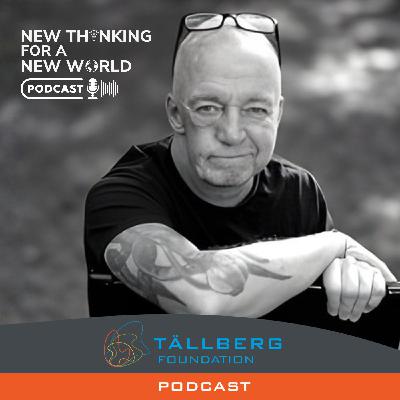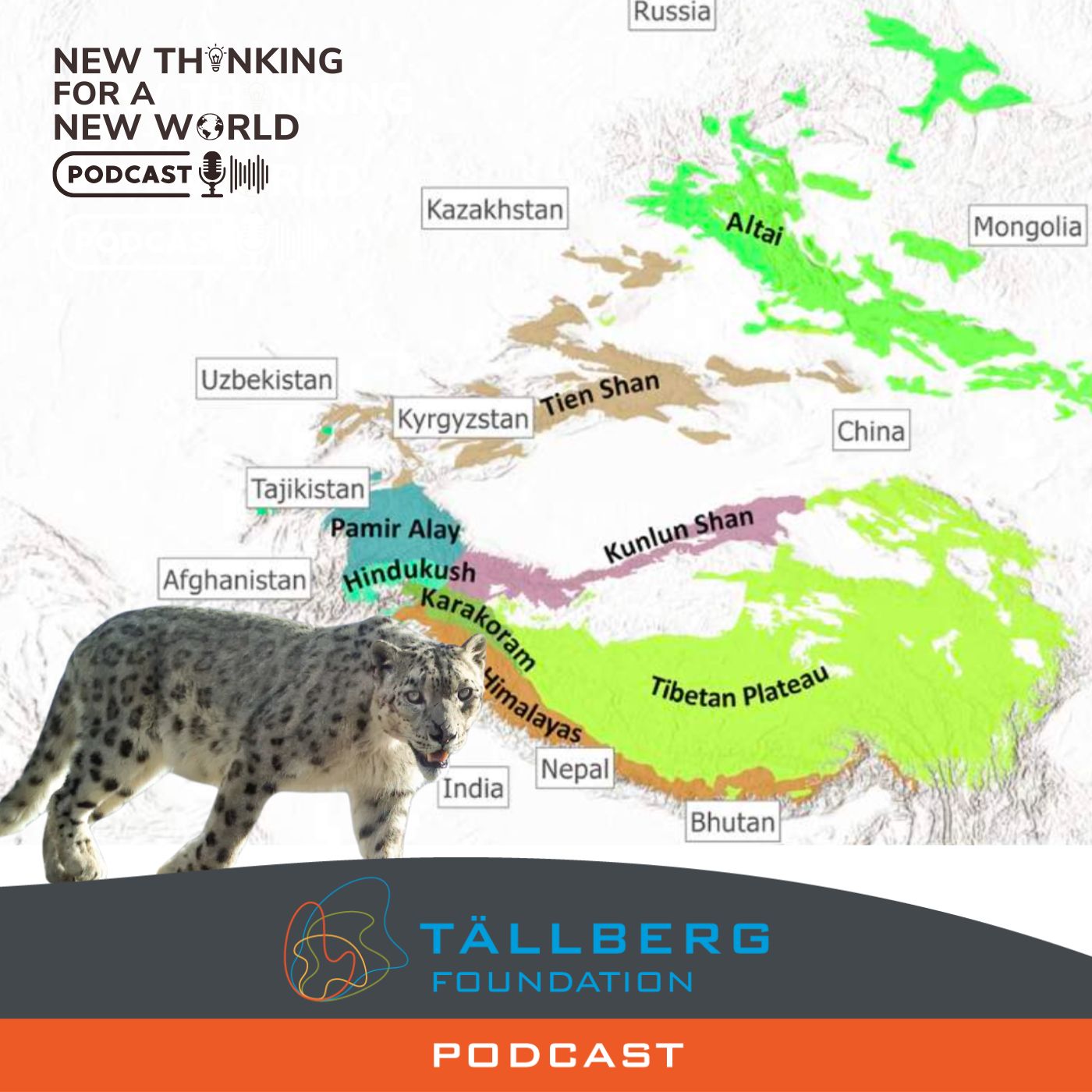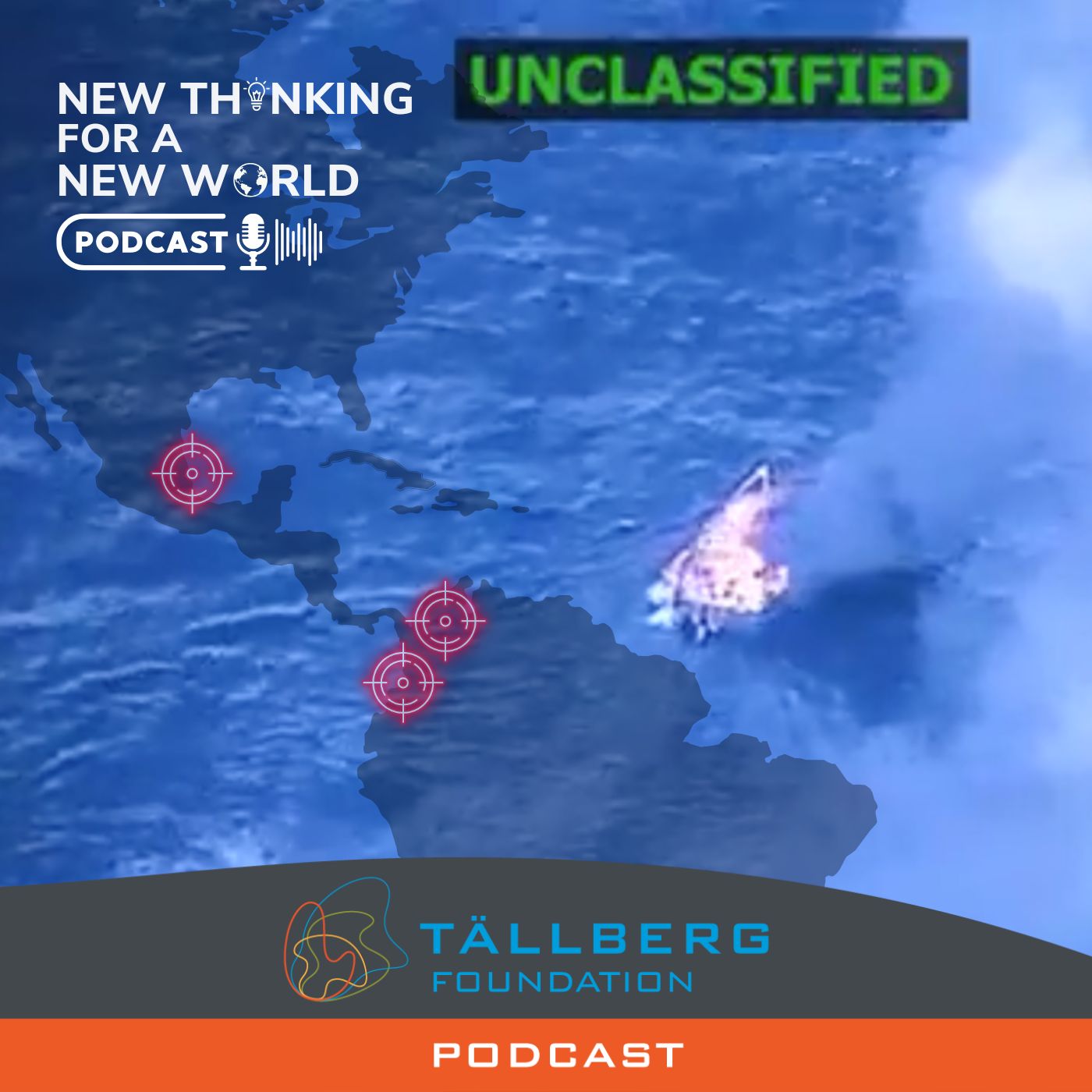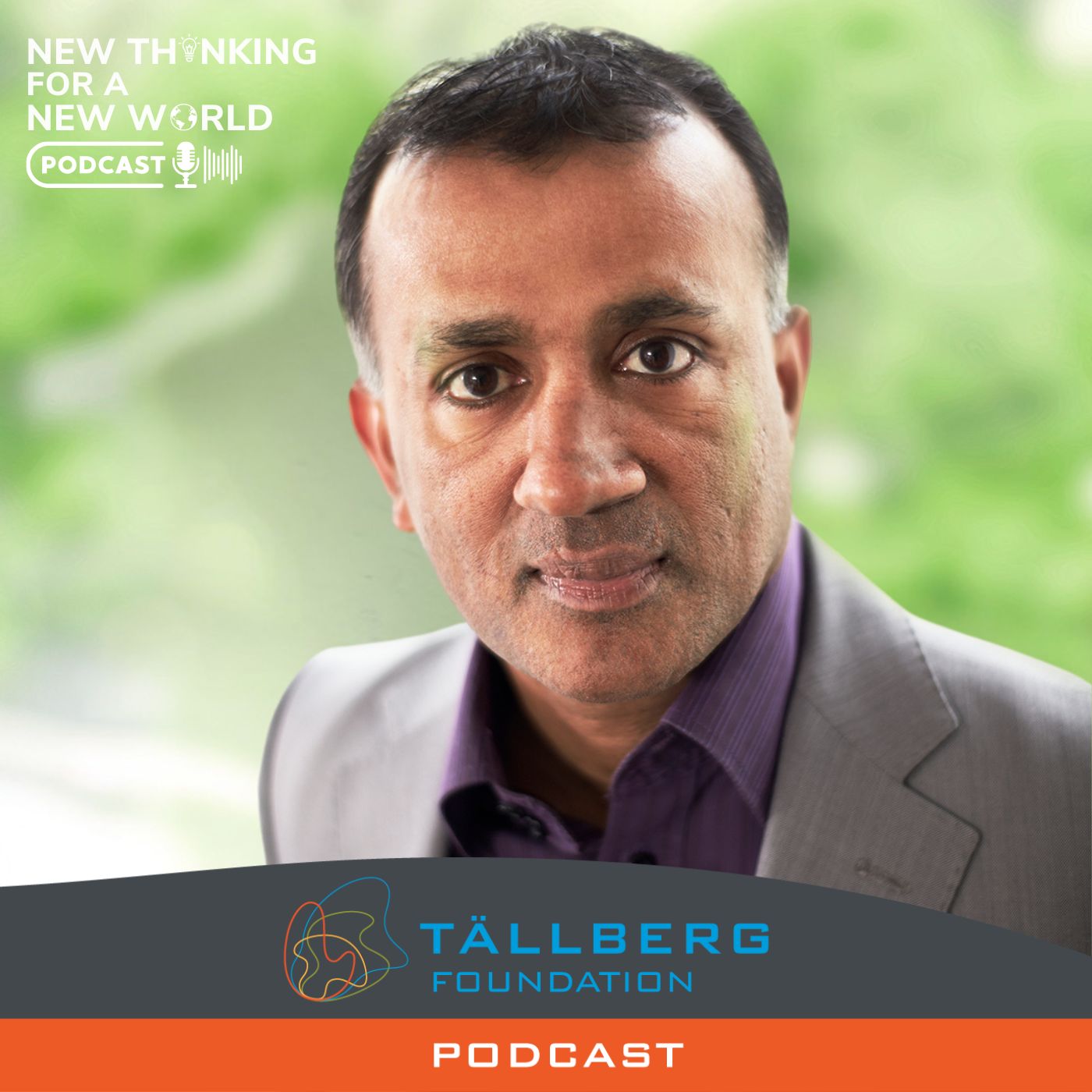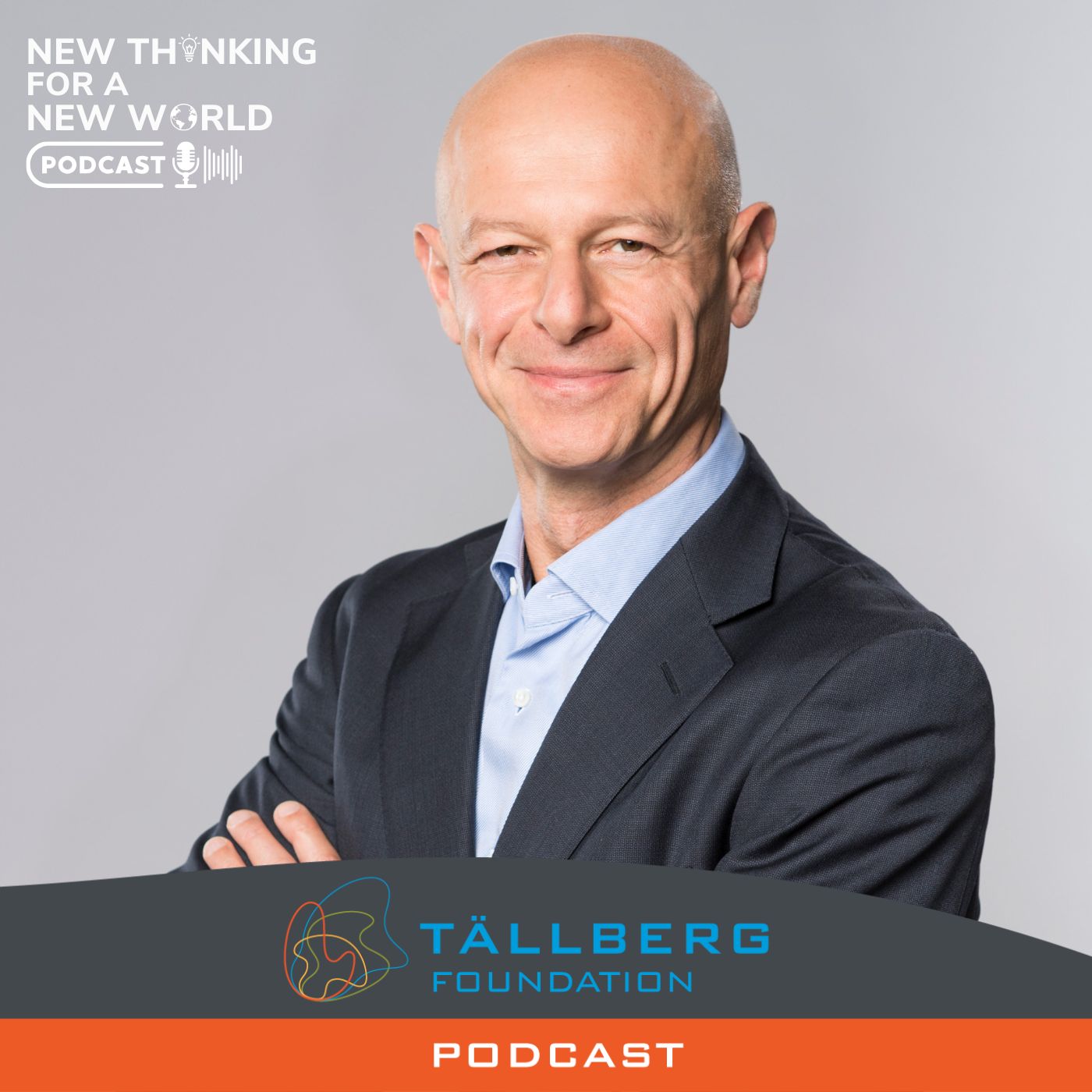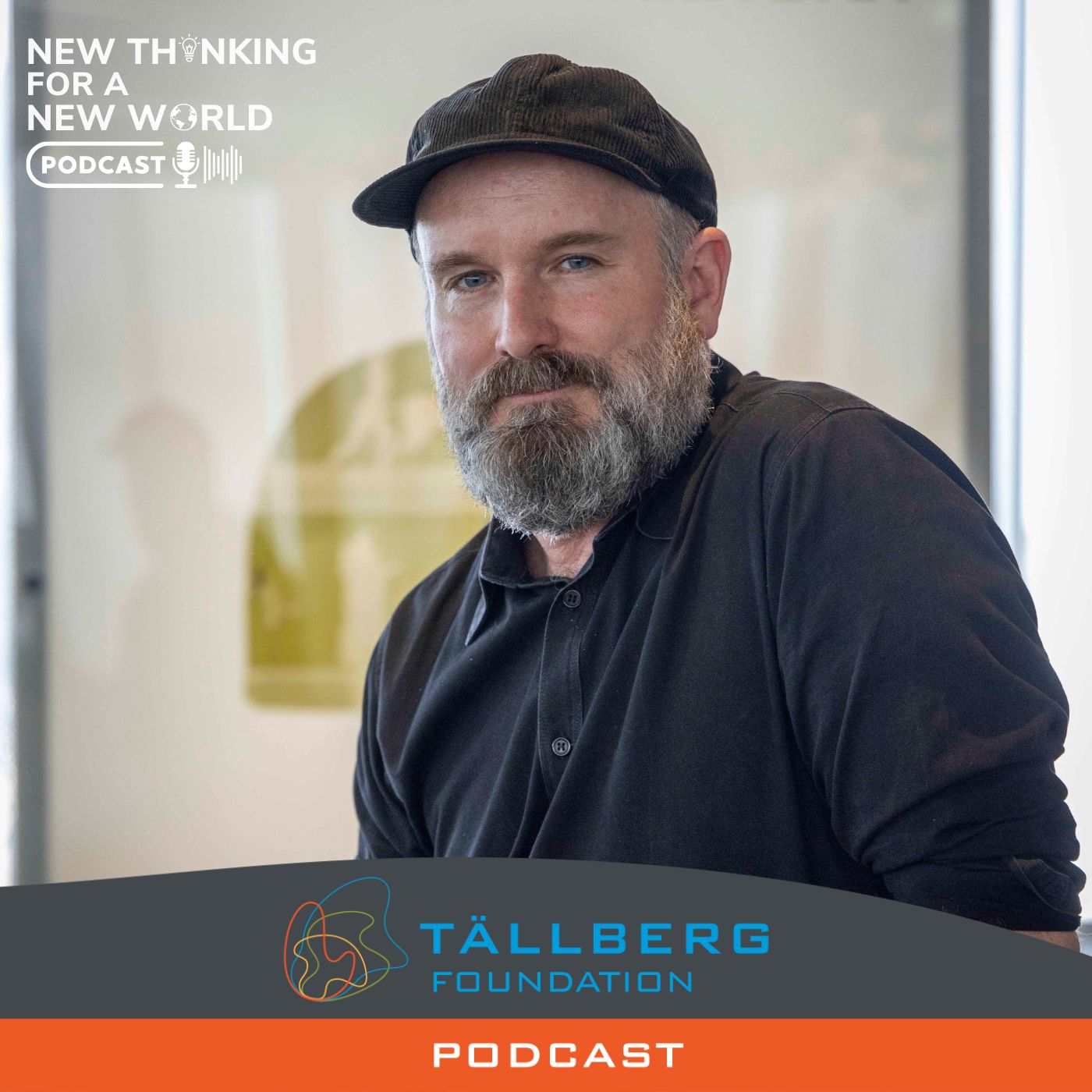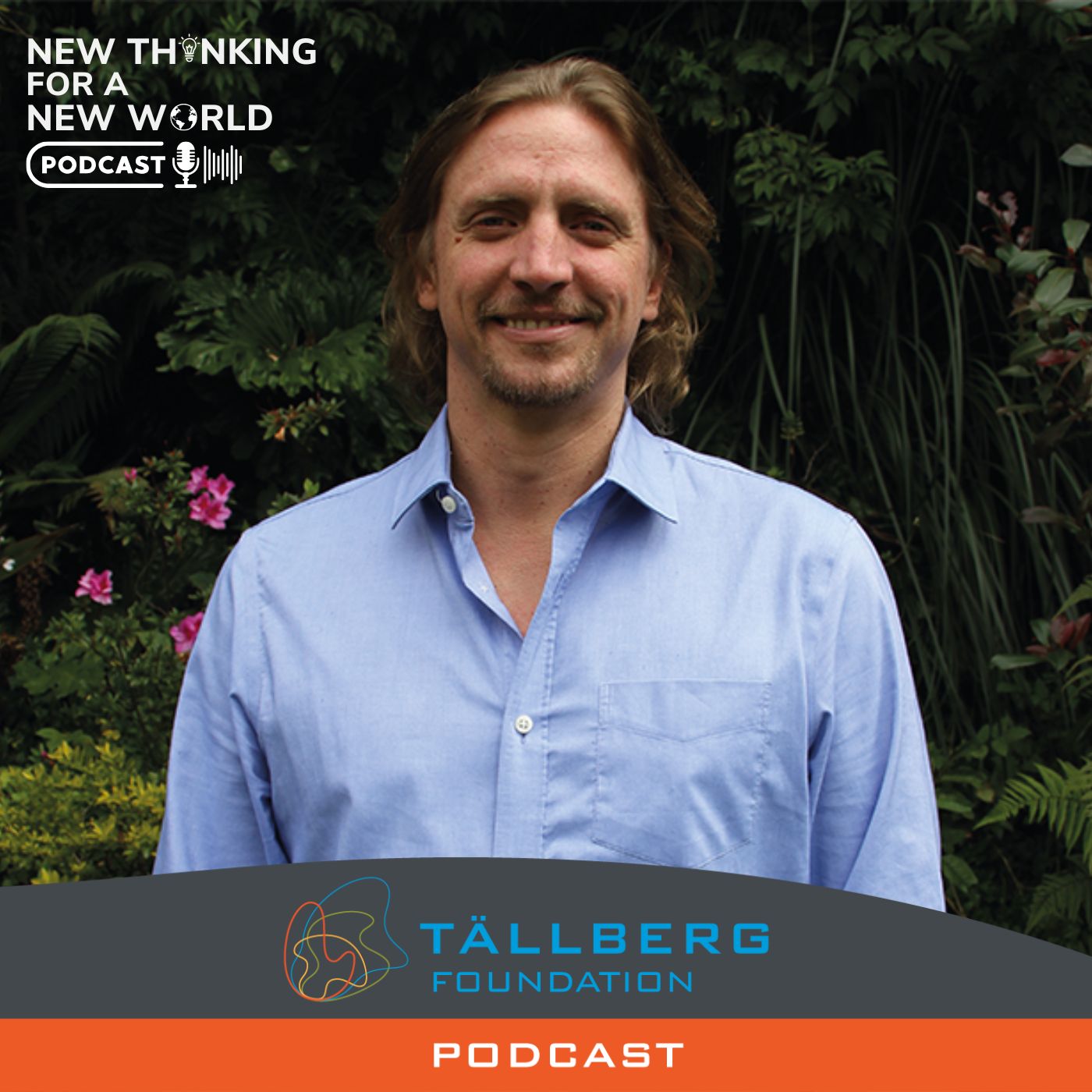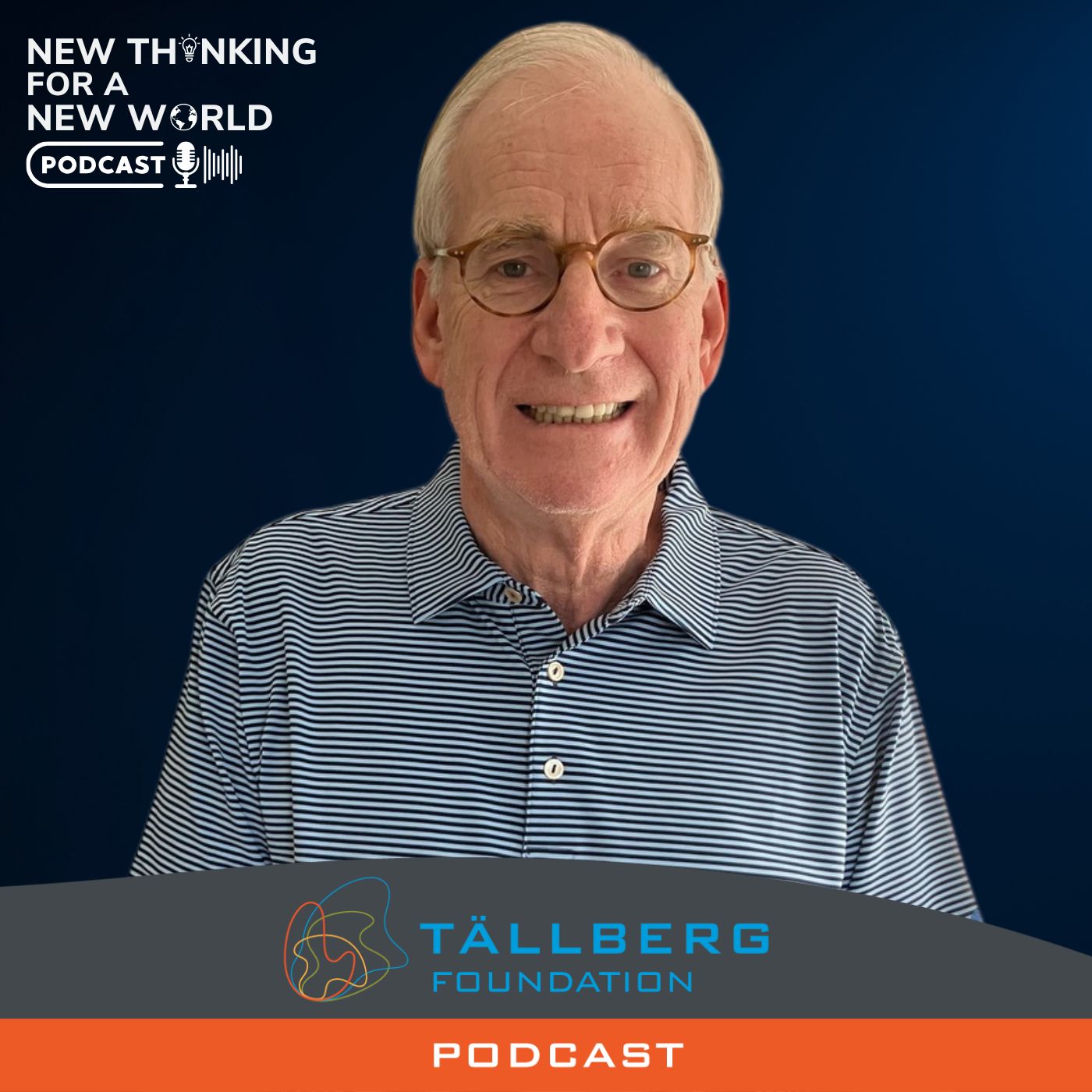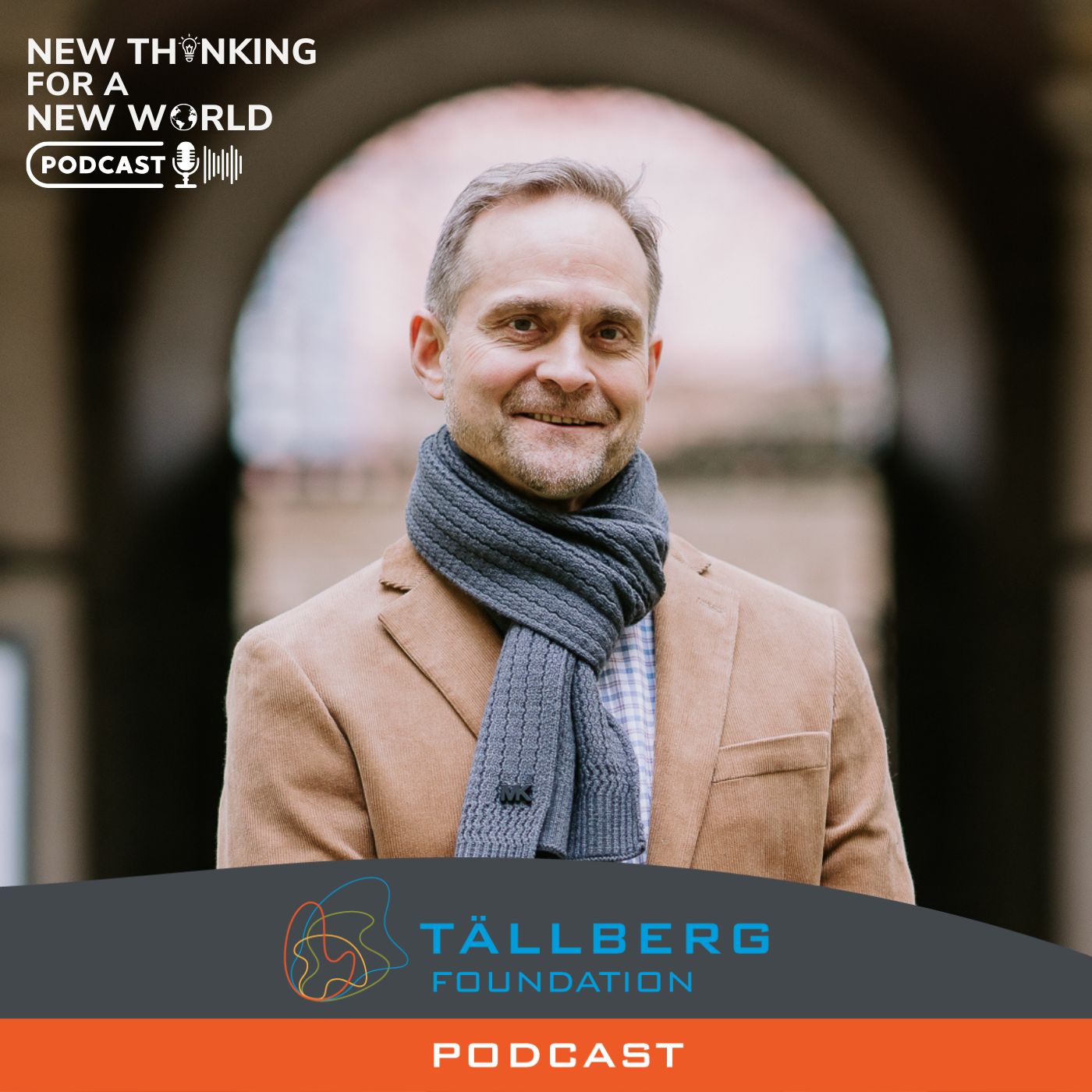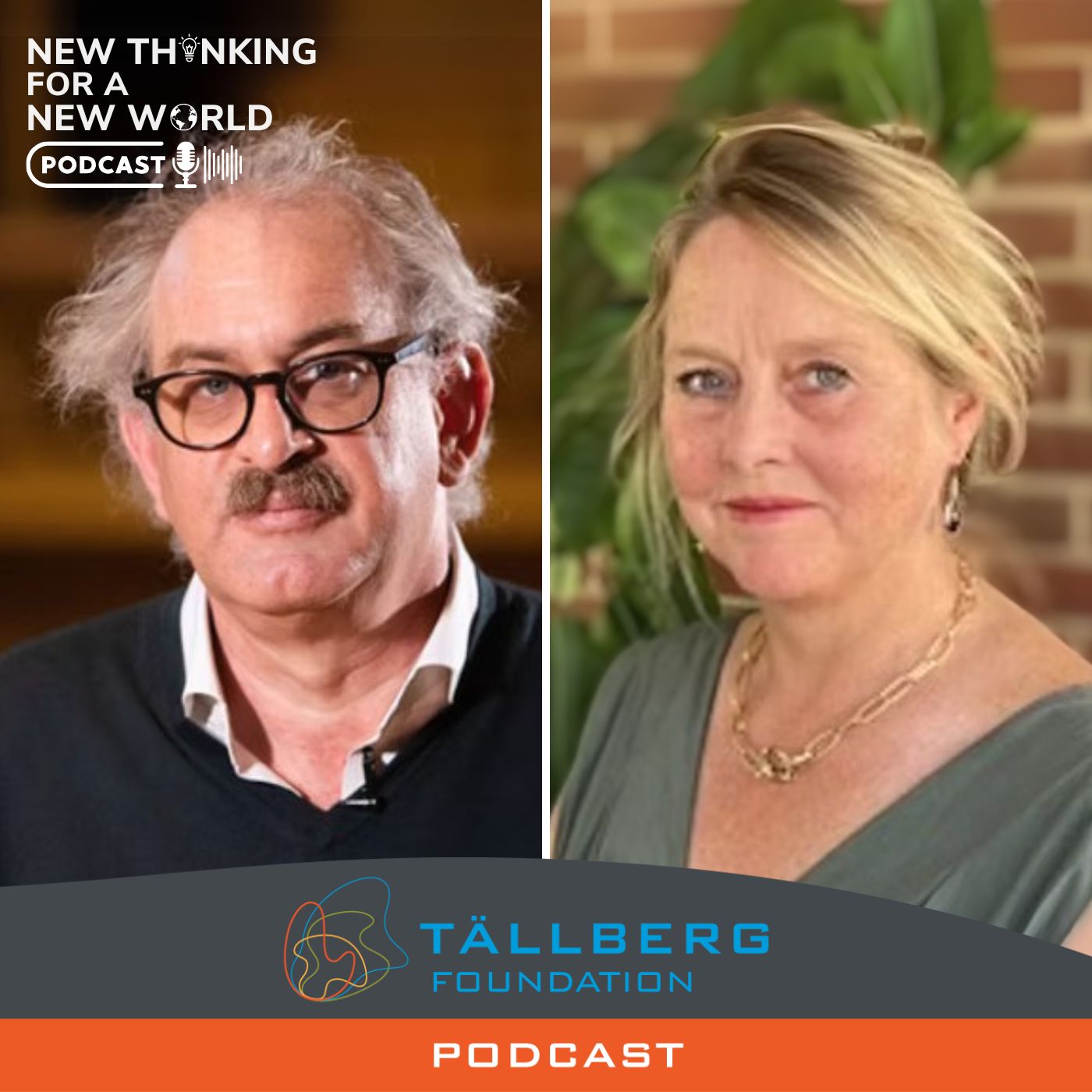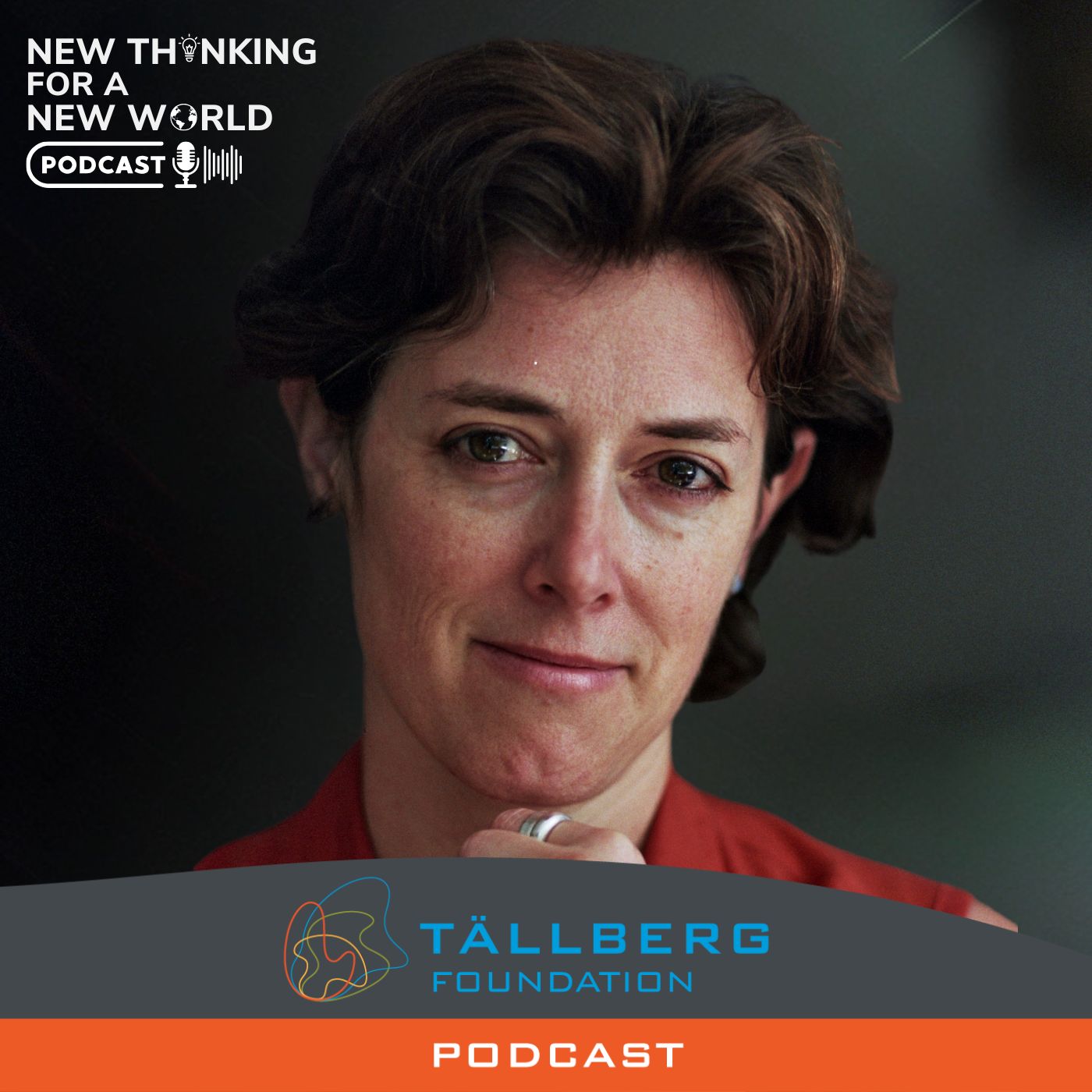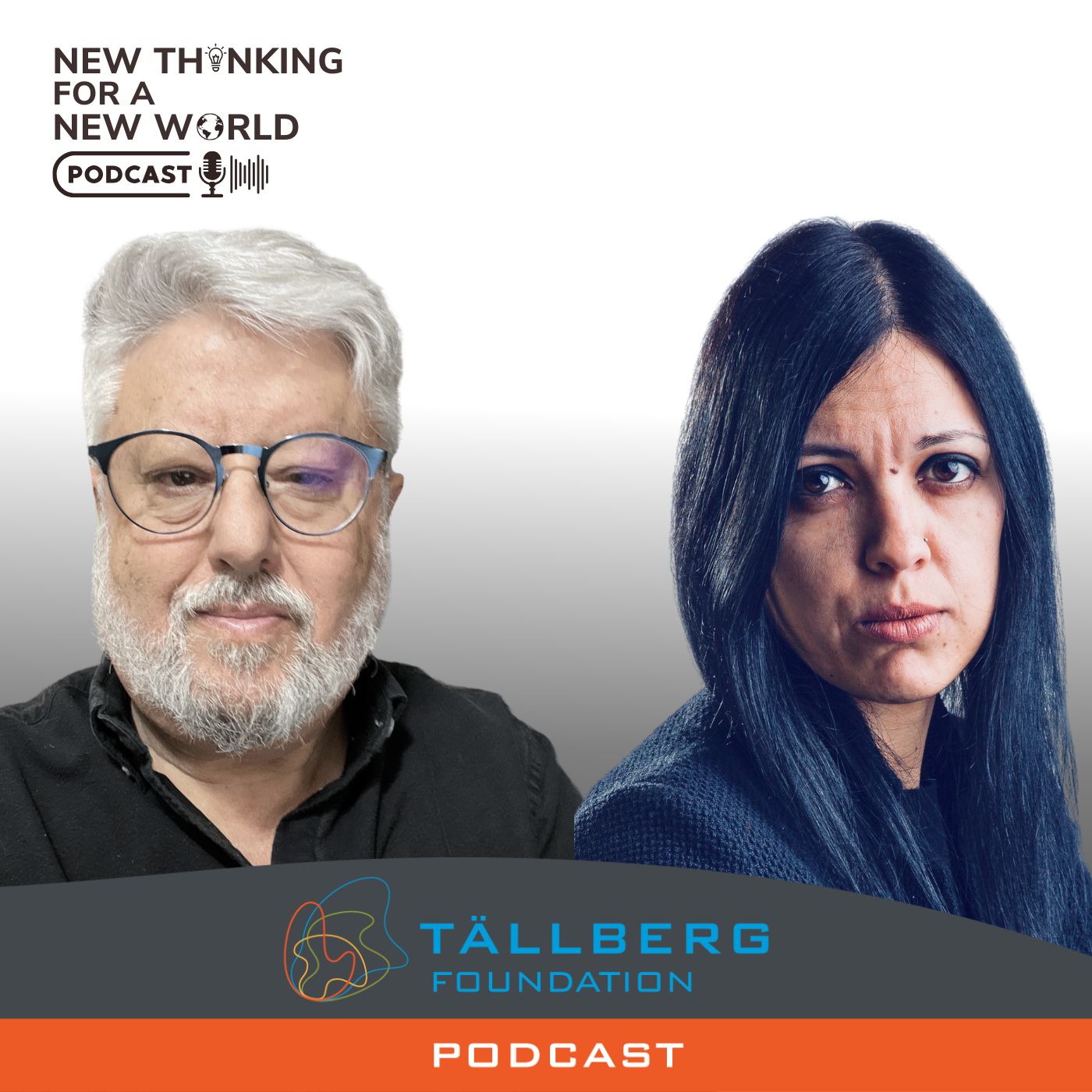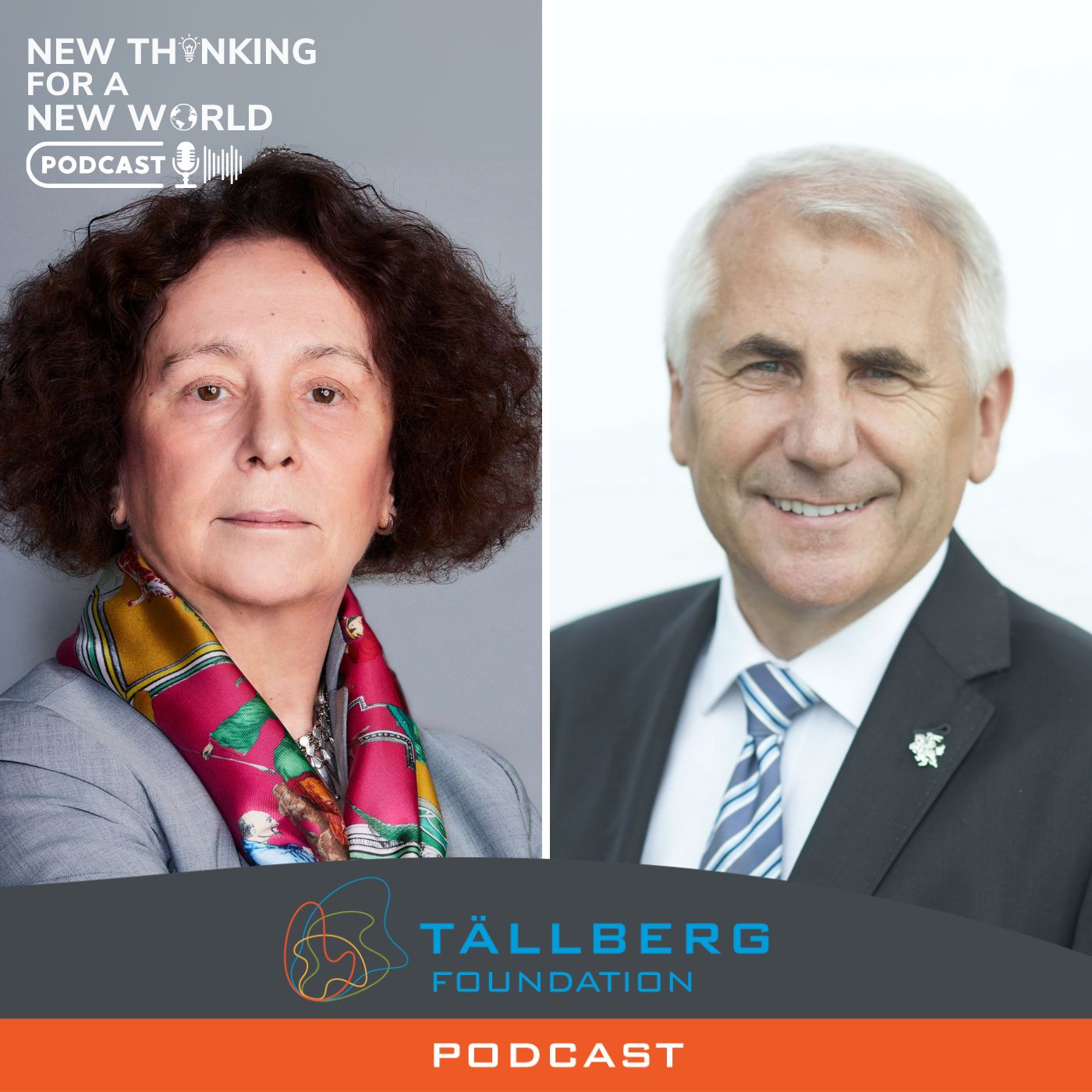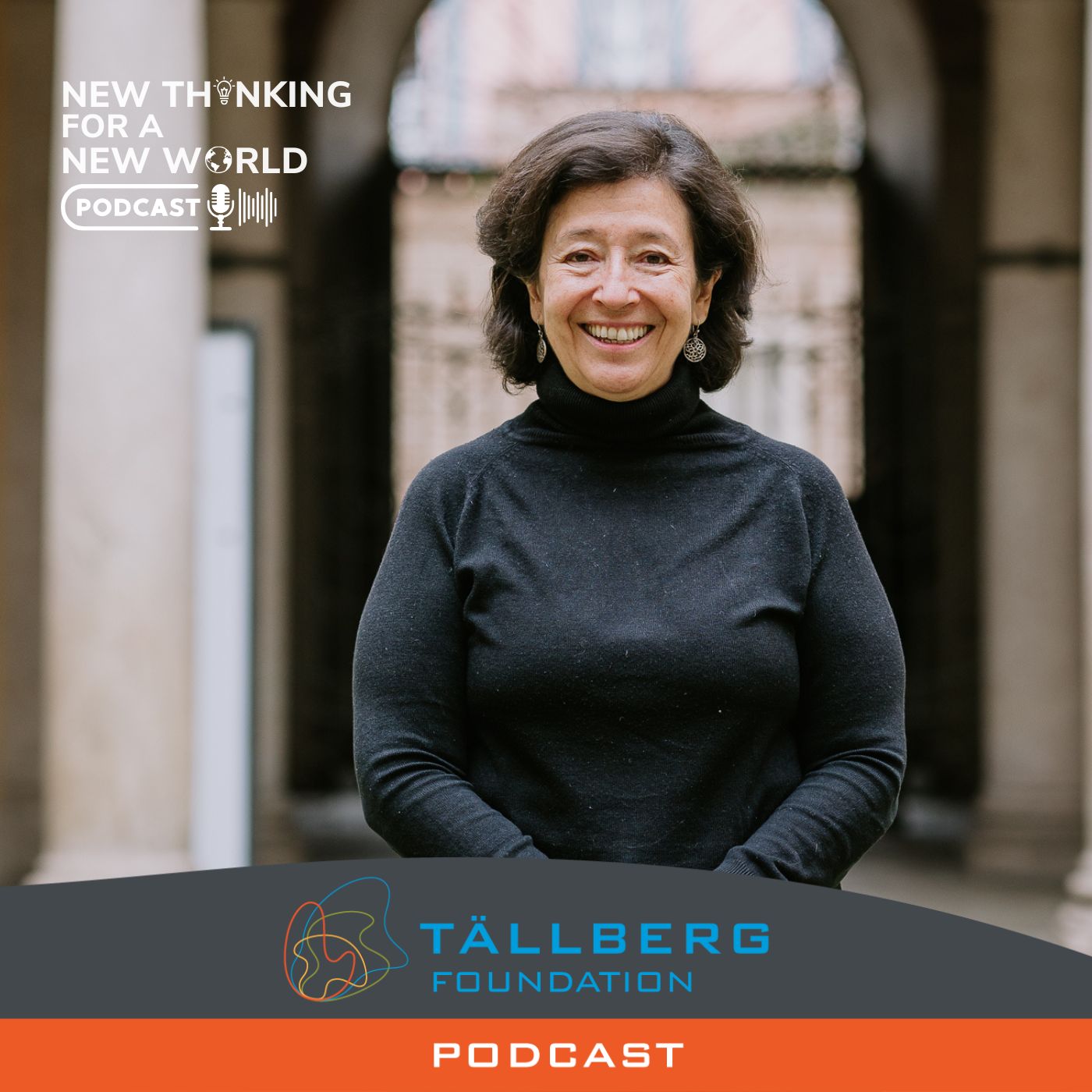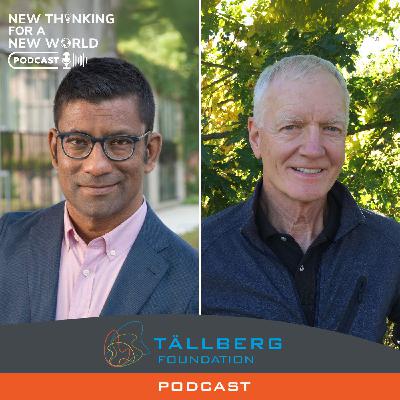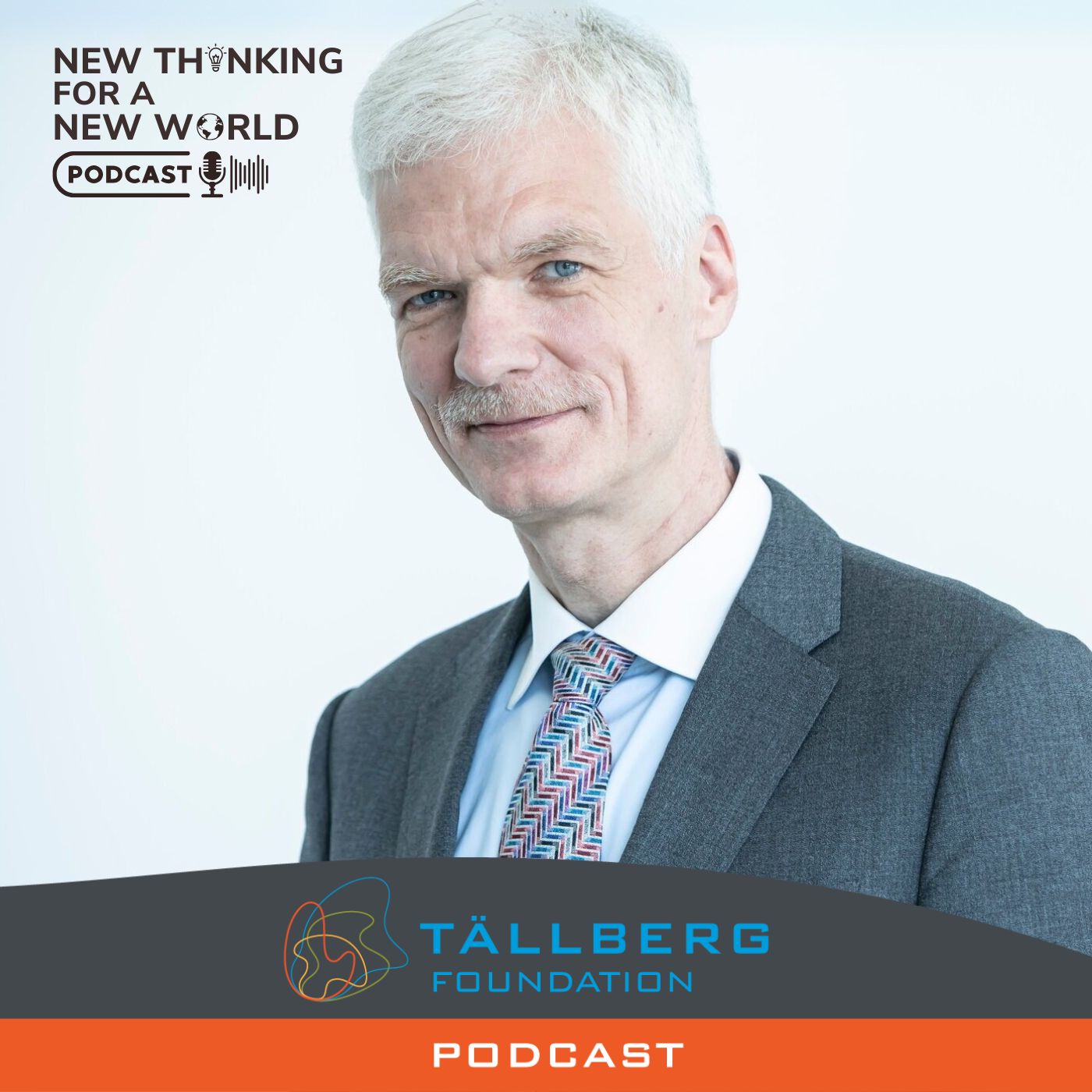Discover New Thinking for a New World - a Tallberg Foundation Podcast
New Thinking for a New World - a Tallberg Foundation Podcast

New Thinking for a New World - a Tallberg Foundation Podcast
Author: Tällberg Foundation
Subscribed: 18Played: 605Subscribe
Share
© Tällberg Foundation
Description
Aiming to provoke people to think — and therefore act — differently about the global issues that are shaping their future, the Tällberg Foundation is sharing some of its conversations in podcast form. The podcast invites you to hear from leaders from different sectors and geographies as they explore issues that are challenging and changing our societies.
247 Episodes
Reverse
Thirty years after the United Nations first called for global action on climate change, progress remains painfully slow. Year after year, world leaders meet, make promises, and defer real solutions. Why? Because top-down global governance continues to fail in a world divided by power, politics, and inequality. In this episode, Linwood Pendleton, Global Coordinator of the Ocean Knowledge Action Network, argues that it’s time to look elsewhere for answers. Drawing on his work with Indigenous academics, ocean scientists, and local communities around the world, he explains why true progress depends on wisdom from the ground up. Hope, he insists, lies not in endless summits—but in reconnecting with knowledge systems that already know how to live in balance with the planet.
The snow leopard, a mysterious and endangered big cat, roams the High Himalayas across a dozen countries—many of them rivals in politics, religion, and ideology. Yet these nations have found rare common ground: protecting this remarkable animal. In this episode, Dr. Charu Mishra, Executive Director of the Snow Leopard Trust, explains how a shared commitment to conservation has become a bridge for peace and cooperation in one of the world’s most fragile and contested regions. From climate change to border conflicts, the Himalayas mirror global challenges—but Mishra’s story reveals that even amid tension and competition, shared humanity and ecological interdependence can inspire collaboration. His work offers a model for how protecting nature can also protect people.
What happens when a failed War on Drugs collides with a War on Terror? President Donald Trump has rebranded drug cartels as terrorist organizations, blowing up “go-fast” boats in the Caribbean, putting a $50 million bounty on Venezuela’s president, and deploying major military force to the region. Is this truly about national security—or the start of a new forever war? Host Alan Stoga explores these questions with Chris Dalby, Director and Founder of World of Crime, and Professor Clionadh Raleigh, President and CEO of ACLED.
In the second half of this two-part conversation, host Alan Stoga continues his discussion with journalist Francesca Borri, former Iranian diplomat Hossein Mousavian, and Hebrew University lecturer Abraham Silver. Together they probe deeper into the aftermath of the recent war, the fragility of the ceasefire, and the broader question of whether Iran and Israel are on the path to peace—or simply preparing for the next conflict.
Six weeks after Iran and Israel fought a brief but intense 12-day war, a fragile ceasefire holds—but for how long, and at what cost? In this two-part conversation, host Alan Stoga is joined by journalist Francesca Borri, former Iranian diplomat Hossein Mousavian, and Hebrew University lecturer Abraham Silver to unpack what really happened, what it means for the region, and whether peace is possible—or if this was just the first of many wars to come.
👉 This conversation is published in two parts. You are listening to Part One.
The Congo Basin, the world’s second-largest rainforest, is vital to global climate health. But unlike the Amazon, its biggest threat isn’t farming—it’s the demand for minerals driving the Green Transition. Could the race to electrify the world cost us the Congo?
Jaap van der Waarde, WWF’s Conservation Director for the region, explores how the demand for rare minerals risks tipping the Basin’s fragile ecosystem—and what must change to protect it.
Can profit and planet go hand in hand? As public climate financing falls short, attention turns to the private sector. But can businesses do good for the environment while still making a return?
Tânia Trindade of SODEFOR, a forestry company managing a million hectares in the Congo River Basin, believes they can. She shares how the company balances sustainability and profit in one of the world’s most vital ecosystems—and why private capital may be essential to the climate fight.
We’re living through a moment of global upheaval—where the old order is crumbling, and the future feels dangerously uncertain. At the heart of this instability is the evolving, uneasy relationship between the U.S. and China: two powers with the ambition and capacity to shape whatever comes next, yet with fundamentally different worldviews.
In this episode of New Thinking for a New World, we hear from Chandran Nair, founder of the Global Institute for Tomorrow, a Pan-Asian think tank. Speaking from an Asian perspective, Nair argues that China may be more clear-eyed than the West about how the world should work. Is he right? Listen and decide for yourself.
President Trump’s trade war, regulatory overhaul, and fiscal shake-up aim to rewire the U.S. and global economies. Can it work—or backfire? Economist Marco Annunziata, former Chief Economist at GE, joins host Alan Stoga to explore the promises and pitfalls of Trumponomics—and what it might mean for your job, savings, and future.
Great art is timeless—it reveals how we think and why we act. What if classics like Greek tragedy or Shakespeare were used to explore today’s challenges—racism, war, corruption? That’s what Bryan Doerries and Theater of War have done for nearly 20 years. The results are healing, raw, and real. Listen as Bryan shares how personal loss led him to reimagine an ancient art form for modern times.
In 2019, Brazilian scientist Carlos Nobre warned of an approaching Amazon tipping point. Five years later, record droughts and fires suggest that moment may have arrived.
Yet Francisco “Pacho” von Hildebrand, who grew up in the Amazon and now leads Gaia Amazonas, still believes the rainforest can be saved—if Indigenous communities are empowered to protect what remains.
Listen as Pacho shares why he hasn’t given up hope. What do you think?
Does Congress still matter in the Trump era? With presidential power expanding and checks and balances under pressure, this question is more urgent than ever. Tom O'Donnell—veteran congressional insider and longtime aide to Democratic leader Dick Gephardt—joins host Alan Stoga to explore the growing clash between Congress and the White House. Who will come out on top?
Healthcare is personal. Whether it’s a baby in Uganda struggling to breathe or a father in New York contracting MERS after surgery, individual experiences matter more than national statistics. Can innovative technology solve what ails us?
Dr. Kristian Olson, a Harvard internist, pediatrician, and global health designer, thinks so. As founder of the Center for Affordable Medical Technology (CAMTech) and a 2024 Tällberg-SNF-Eliasson Global Leadership Prize winner, he’s transforming healthcare in low-income countries through human-centered design.
Can smart tech make us healthier? Tune in to explore.
This episode was originally published on November 27, 2024.
Shakespeare wrote in Hamlet, “The play’s the thing, wherein I’ll catch the conscience of the king,” highlighting drama’s power. That same force drives The Trojan Women Project, created by Charlotte Eagar and William Stirling. The project uses Euripides’ ancient play to help refugees from the Middle East and Ukraine cope with trauma, combining classical text with lived experience for both therapy and insight.
Charlotte and William have worked on this project for over a decade. The Tällberg Foundation first met them in 2014 when they brought Syrian refugee cast members to a workshop. The performance of The Trojan Women was powerful, raw, and deeply personal. In this episode, the filmmakers discuss how theater can heal and transform both refugees and audiences.
Despite its vast natural wealth, the Democratic Republic of Congo is trapped in cycles of war, corruption, and foreign meddling. Armed militias, reportedly backed by Rwanda, have seized parts of the mineral-rich east, raising fears of wider conflict and possible regime change.
Journalist and author Michela Wrong joins the podcast to unpack the stakes of Congo’s latest crisis—and why it matters beyond the region. Her recent Foreign Affairs article, “How Far Will Rwanda Go in Congo?” offers key insights into a conflict that echoes global struggles over resources, borders, and power.
The Hamas attacks on October 7, 2023, ignited another cycle of devastation, leaving countless lives lost or shattered—mostly Palestinian, but also Israeli. Beyond rebuilding roads and houses, how can people on both sides heal from the hate, despair, and fear that fuel ongoing violence?
This episode of New Thinking for a New World shifts the focus from political plans to the human reality of those forced to coexist. Italian journalist Francesca Borri, reporting from Jenin, and Israeli activist Gershon Baskin, deeply committed to coexistence, share their insights.
Is peace possible?
Donald Trump has long criticized the EU, calling it unfair to the U.S. and favoring tariffs and direct deals with Moscow over cooperation with allies. His shift on Ukraine—from Biden’s full support to “Stop the killing”—has further strained transatlantic ties, with European leaders calling him a “traitor” and warning that U.S. unpredictability is a bigger threat than Russia.
But could Trump’s hostility push Europe to take control of its own future? In this episode of New Thinking for a New World, former foreign ministers Ana Palacio of Spain and Vygaudas Usackas of Lithuania explore whether Trump’s presidency might, ironically, be just what Europe needs.
Winston Churchill once said, “A free press is the unsleeping guardian of every other right… the most dangerous foe of tyranny.” Today, as trust in governments and media erodes, we see how deeply connected they are.
María Teresa Ronderos, co-founder of the Latin American Center for Investigative Journalism (CLIP) and 2024 Tällberg-SNF-Eliasson Global Leadership Prize winner, is working to restore faith in journalism. She believes honest, smart reporting is the key to countering misinformation and that technology, when used right, can strengthen democracy. Good journalism, she insists, is more vital than ever.
**This episode was originally published on December 5, 2024.**
Donald Trump has been president for just five weeks, yet the whirlwind of executive orders, budget cuts, nominations, and sweeping policy shifts has made it feel much longer. His rapid-fire approach signals an intent not only to reshape Washington but to redefine America's role in the world. No modern president has begun with such relentless activity, prompting an early assessment rather than the traditional hundred-day review.
To explore these developments, the Tällberg Foundation hosted a webinar featuring Alan Stoga, Tällberg’s chairman, in conversation with Aziz Huq, a constitutional law professor at the University of Chicago, and Scott Miller, a strategist advising businesses, politicians, and governments worldwide.
We live in a rapidly evolving, technology-driven world that is transforming how we learn, create, and interact. Ideally, this transformation would make people smarter, healthier, and more prosperous. But the reality is far from perfect—too many people lack the skills to navigate modern life, leaving them struggling to keep up.
A massive OECD study of adult skills across 31 countries reveals a troubling trend: literacy, numeracy, and problem-solving abilities are stagnating or declining, just when societies need them most. In this episode, Andreas Schleicher, Director for Education and Skills at the OECD, discusses these findings with host Alan Stoga. Are we equipped for the future, or is technology outpacing our ability to adapt?


